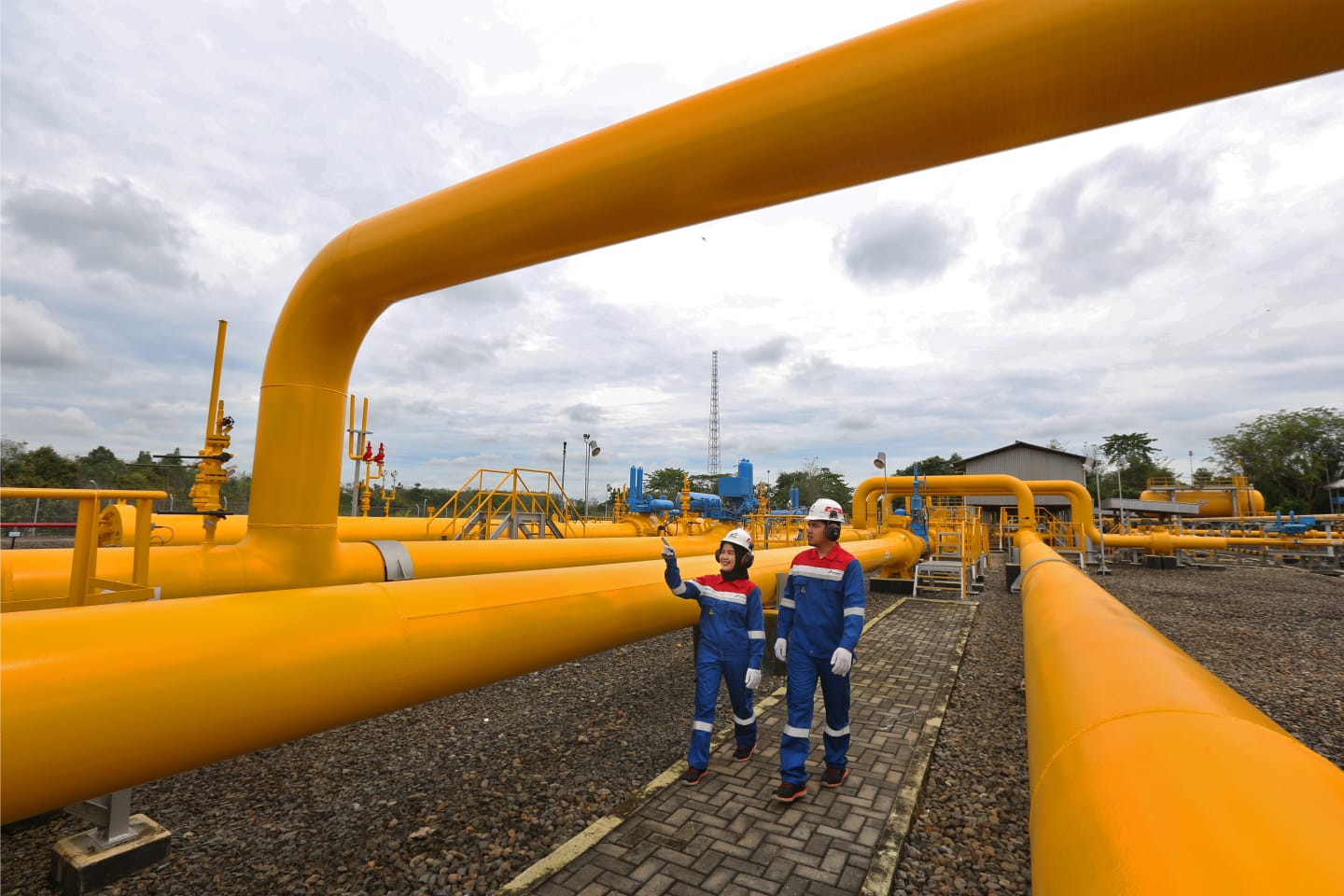Kembali Ke Beranda
3 Mar 2024
PGN's Natural Gas Infrastructure Development Aimed at Strengthening Domestic Gas Utilization
Jakarta – PT Perusahaan Gas Negara Tbk (PGN) is committed to supporting the government’s efforts in expanding the utilization of domestic natural gas, while positioning natural gas as a transition energy source towards achieving net-zero emissions by 2060. PGN demonstrates this commitment through the development of various natural gas infrastructures, including expanding household gas networks and providing gas filling stations (SPBG) to facilitate access for natural gas users.
Rosa Permata Sari, PGN’s Director of Strategy and Business Development, explained that natural gas is a strategic asset for the nation that must be optimized, particularly in strengthening national energy resilience. The fact that Indonesia’s natural gas reserves are greater than its oil reserves should be responded to with appropriate strategies from upstream to downstream. This ensures that natural gas can continuously serve as a booster for Indonesia’s economy and a driver for strategic sectors that serve the public interest, such as electricity, fertilizers, industry, and petrochemicals.
“PGN continues to support the government’s efforts to strengthen energy resilience through the utilization of domestic gas resources. Moving forward, PGN will also take initiatives to develop gas infrastructure to reach more users,” explained Rosa on March 3, 2024.
From an infrastructure perspective, PGN will be involved in several strategic projects in 2024, including the WNTS-Pemping gas pipeline project, gas infrastructure in the Tuban refinery, and the construction of pipeline infrastructure to support fertilizer plants in Eastern Indonesia. In terms of commercialization, PGN will continue to increase the introduction and utilization of LNG in LNG Trading, LNG Hub & Storage, and LNG Bunkering for the Marine Fuel sector. This strategic role is essential, as LNG will become Indonesia's future supply source. PGN is also starting to participate in the downstream sector of natural gas, particularly in petrochemicals and biomethane, as well as supporting decarbonization programs such as hydrogen and CO2 transportation.
The company is also preparing for the completion of the Cirebon-Semarang Phase II gas network project (CISEM II). PGN will collaborate with the government to integrate natural gas infrastructure to increase natural gas utilization in Java, as well as its interconnections to Sumatra and the Riau Islands. The operationalization of this gas network will enhance gas supply resilience and address the issue of network interconnections between East and West Java, which has yet to be connected. The development of this infrastructure will increase domestic natural gas supply resilience by integrating supply sources from various regions in Java and Sumatra.
Currently, PGN Group operates a gas pipeline network from Gresik in East Java to Batang in Central Java. This pipeline network allows the surplus natural gas in East Java to be utilized to supply energy needs for emerging industrial zones in Central Java.
“The interconnection of the gas pipeline network in Java will enhance energy security and strengthen gas supply and distribution to various user segments. This includes accelerating the government’s efforts to increase household gas users, which is expected to reduce LPG subsidies. The National Capital City (IKN) is one of PGN’s priority targets for providing clean and environmentally friendly energy in this strategic government project as the new capital city takes shape. Our target in the next three years is to reach around 2.5 million household gas users, with opportunities for further growth,” said Rosa.
However, Rosa emphasized that the development of various infrastructure projects by PGN requires support from all stakeholders in the natural gas industry. As a player in the midstream and downstream sectors, PGN only operates in one part of the natural gas business chain. Even though PGN Subholding Gas operates 96% of the nation’s midstream and downstream natural gas infrastructure, PGN requires the support and synergy of all stakeholders involved in policy management and business players in the upstream oil and gas sector to effectively serve customers.
“We will face various economic challenges and the increasing supply of natural gas, primarily in the form of LNG. Therefore, it is crucial for all stakeholders in the industry to play their roles effectively, so the government’s overarching strategy of using natural gas as a transition energy and strengthening national energy resilience can be realized,” she concluded.
Kembali Ke Beranda











